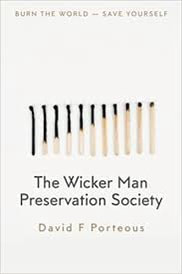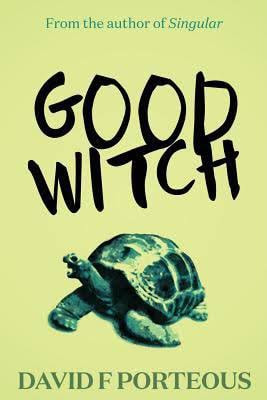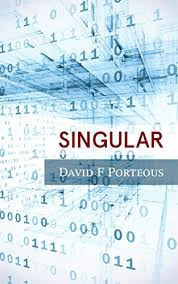dfpiii.com |
The website of David F Porteous |
|
I follow Tim Ferris on Twitter, because this time last year I harboured a secret belief that I too could transform myself with kettle bells and roughage. A successful non-fiction writer and life-guru, Ferris occasionally posts writing-related things and so my interest in him out-lasted my interest in combination vitamin supplements.
This is all preamble, but he posted a link to an article about the value of classics and said that he wouldn’t read any new books for a while. The author of that article made the point that people don’t make the effort with classics because they’re difficult, though ultimately that much more rewarding and worthy than new books. This put a bee in my coif and I’ve been twitching about it since. Old books are better. New books are too rooted in the now, too trendy, too blah. Whereas an old book is a memorable evening of dining and dancing with an elegant, thoughtful lover – a new book is a hand job in the back of Hyundai: immediately satisfying in a very unsatisfying way. Like as not you’ve heard this argument before. Like as not you’ve heard very smart people agree with it. Piffle. I’d recently treated myself to a Kindle and decided that I’d read a few classics – by which I mean free books out of copyright – which I knew by reputation by experiencing them in other media. A few years ago the BBC did a wonderful costumed adaptation of Tom Jones: A Foundling. A thundering, rollicking story full of sex and off-colour humour. I was looking forward to Tom Jones the novel as much as a coach load of elderly ladies on a trip to Vegas look forward to Tom Jones the singer. I was disappointed. The language in Tom Jones is still entirely accessible despite being more than 250 years old, but it was about as badly written as any book I’ve ever picked up. I sashayed through the first oddball chapter where Henry Fielding berates the critics history has forgotten for opinions they haven’t expressed yet and pushed into the book expecting a little more focus and directness. I was disappointed. Imagine if you could load sentences into a shotgun and fire them at a page to form paragraphs – that’s Fielding. And indeed most of his contemporaries. The effective, direct structuring of English was yet to emerge and it was perfectly normal for novelists and essayists to wander with the same deliberate purpose found in cats chasing butterflies. Skip ahead a century and a half to Oscar Wilde – a man better quoted than read – and The Picture of Dorian Gray. Wilde seems to have written a novel only as a way to link together his witty remarks, which are in concentration actually rather annoying and clearly of the same form. A few years back an author tried sending in the subtly altered books of Jane Austen to publishers and was baffled by the response he got – nobody wanted them. I was less baffled. As far as I was concerned that response was inevitable because, while the books are a delight, they are read today not because of their literary merit but because of the strength of the Austen brand. (Mark Twain, most famously, was not a fan of Austen’s style or characterisation). The difference between old books and new isn’t just the language and it’s entirely possible for a book written rather in arcane English to be published and be successful – such as the unexpected noughties hit Jonathon Strange and Mr Norrell by Susanna Clarke. But Clarke has a modern – and better – understanding of the mechanisms of fiction than any of her influences. The book is a success not because it reads a bit like Dickens, but because it reads like Dickens would write a book today. The snobbery of declaring that all the good books were written before we were born and that all of modern literature is trivial is manifestly false. There were contemporaries of Aristotle who felt that all art and reason belonged to a previous age and every generation has been awash with people ready to dismiss to the present. The truth is that modern books aren’t just the equal of the works of previous centuries – they are objectively better. An Austen book submitted today should be rejected by a publisher and there is no classic book that would not benefit from an editor and another draft. Pretending that it’s somehow noble to plough through language abandoned for its uselessness is silly and does considerable disservice to the current generation of writers.
0 Comments
Leave a Reply. |



